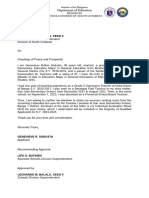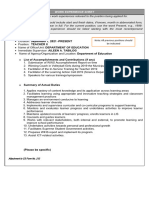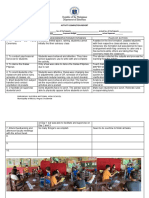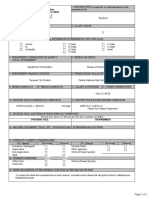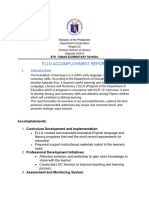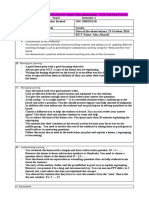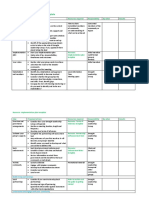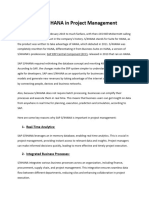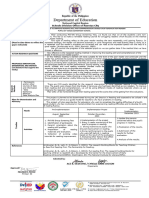0% found this document useful (0 votes)
4K views15 pagesPromotion Interview Prep Guide
This document provides examples of responses to common interview questions for a promotion. Some key points:
- For why you want the new position, focus on how you've grown in your current role and are ready for new challenges to further benefit the company.
- When asked why you should be considered, emphasize accomplishments that exceeded expectations and brought value.
- Remain positive if not selected, while understanding the company must hire the best fit.
- Maintain current relationships and be a mentor if promoted internally to avoid conflicts.
- Demonstrate ability to research and create plans when facing new tasks never done before.
- Set specific, measurable goals for the new role around increasing metrics like team morale
Uploaded by
JEANNE BALIADCopyright
© © All Rights Reserved
We take content rights seriously. If you suspect this is your content, claim it here.
Available Formats
Download as DOCX, PDF, TXT or read online on Scribd
0% found this document useful (0 votes)
4K views15 pagesPromotion Interview Prep Guide
This document provides examples of responses to common interview questions for a promotion. Some key points:
- For why you want the new position, focus on how you've grown in your current role and are ready for new challenges to further benefit the company.
- When asked why you should be considered, emphasize accomplishments that exceeded expectations and brought value.
- Remain positive if not selected, while understanding the company must hire the best fit.
- Maintain current relationships and be a mentor if promoted internally to avoid conflicts.
- Demonstrate ability to research and create plans when facing new tasks never done before.
- Set specific, measurable goals for the new role around increasing metrics like team morale
Uploaded by
JEANNE BALIADCopyright
© © All Rights Reserved
We take content rights seriously. If you suspect this is your content, claim it here.
Available Formats
Download as DOCX, PDF, TXT or read online on Scribd
/ 15

